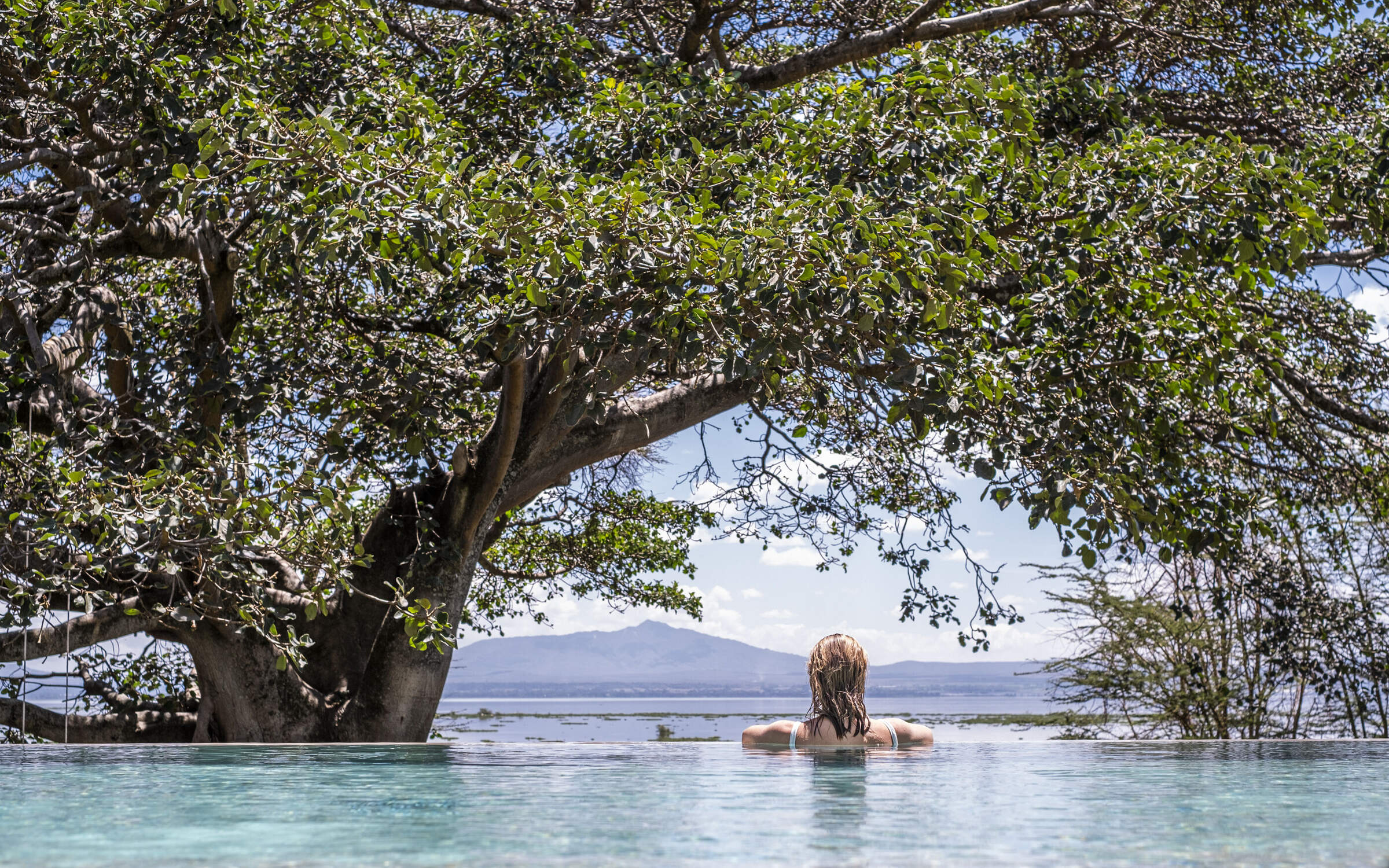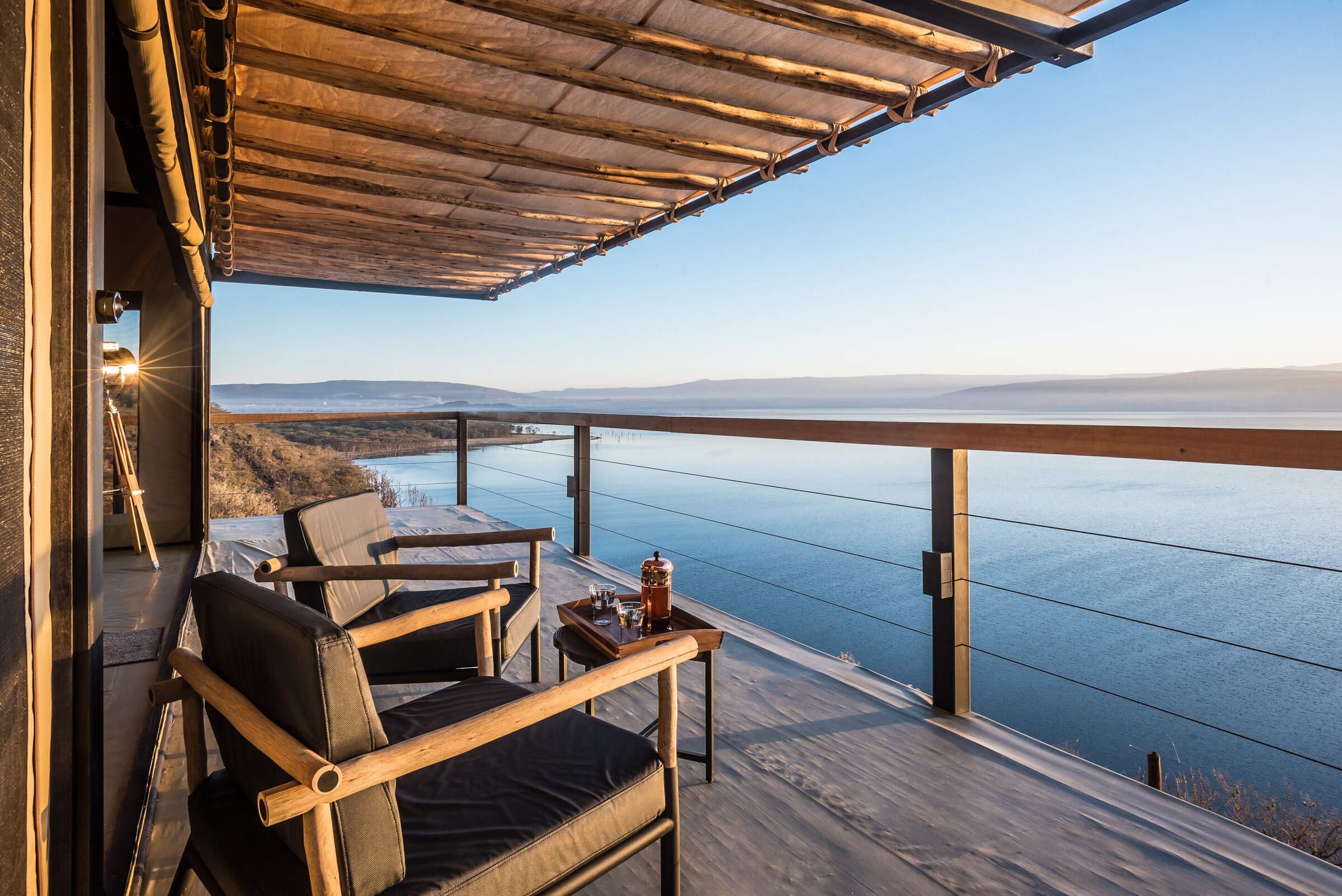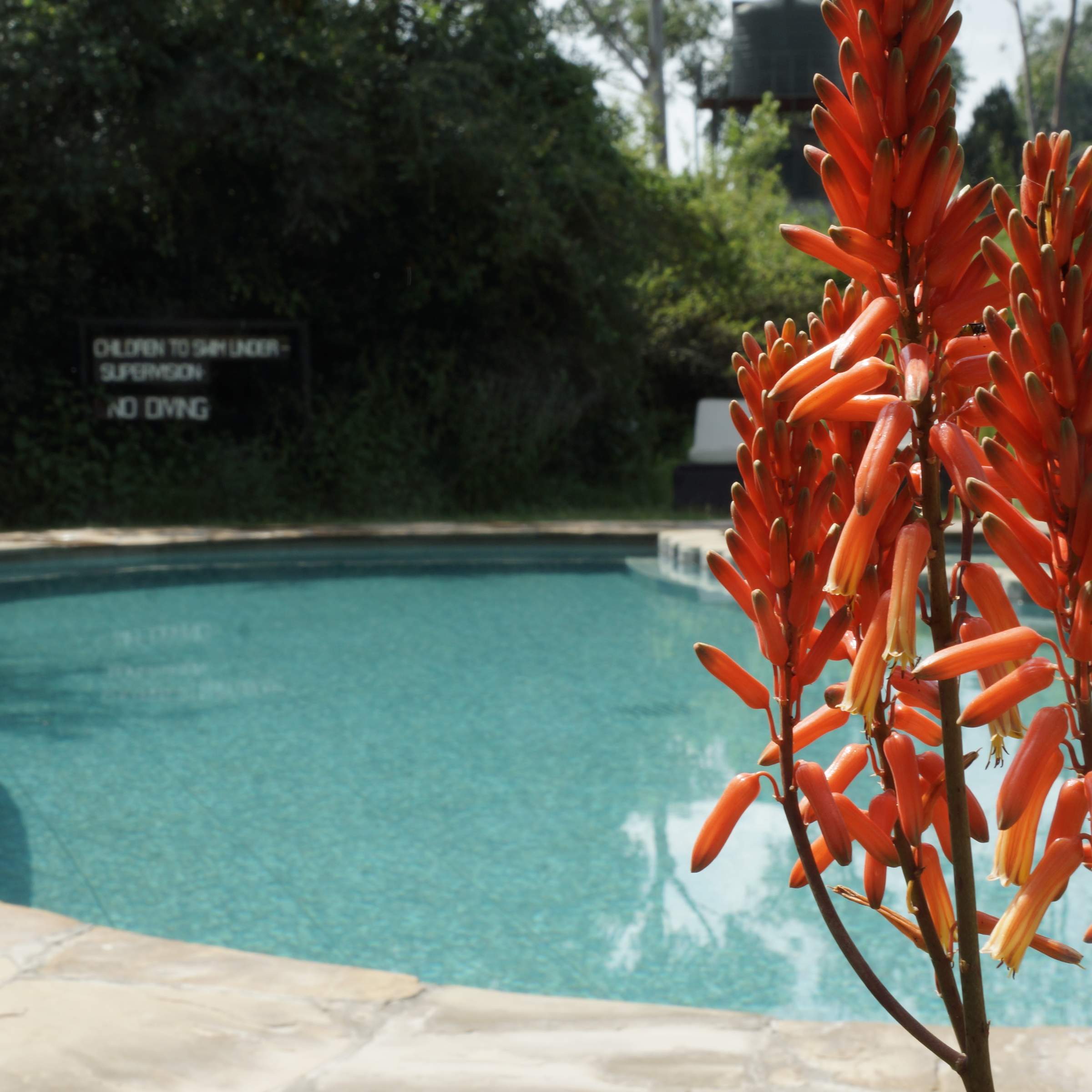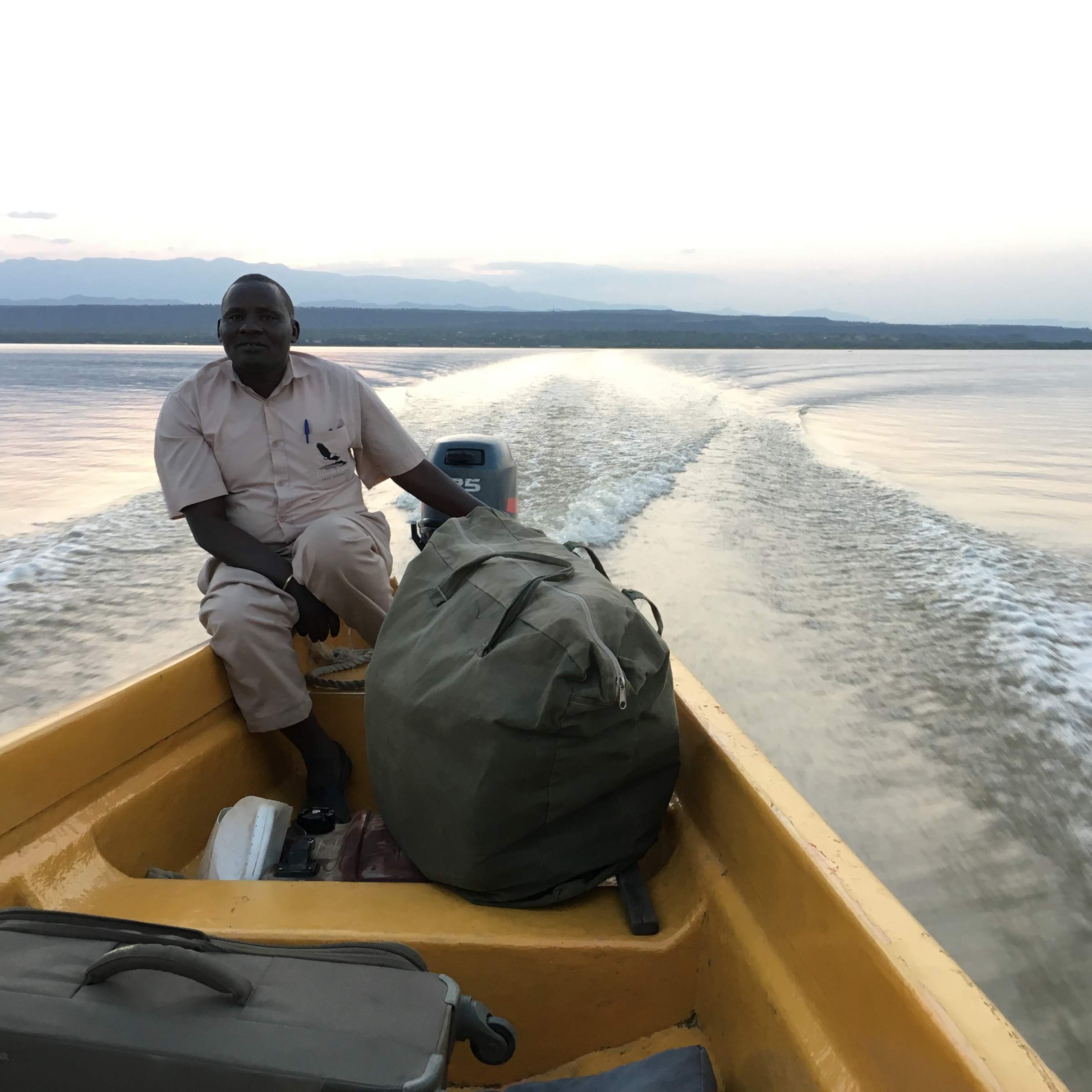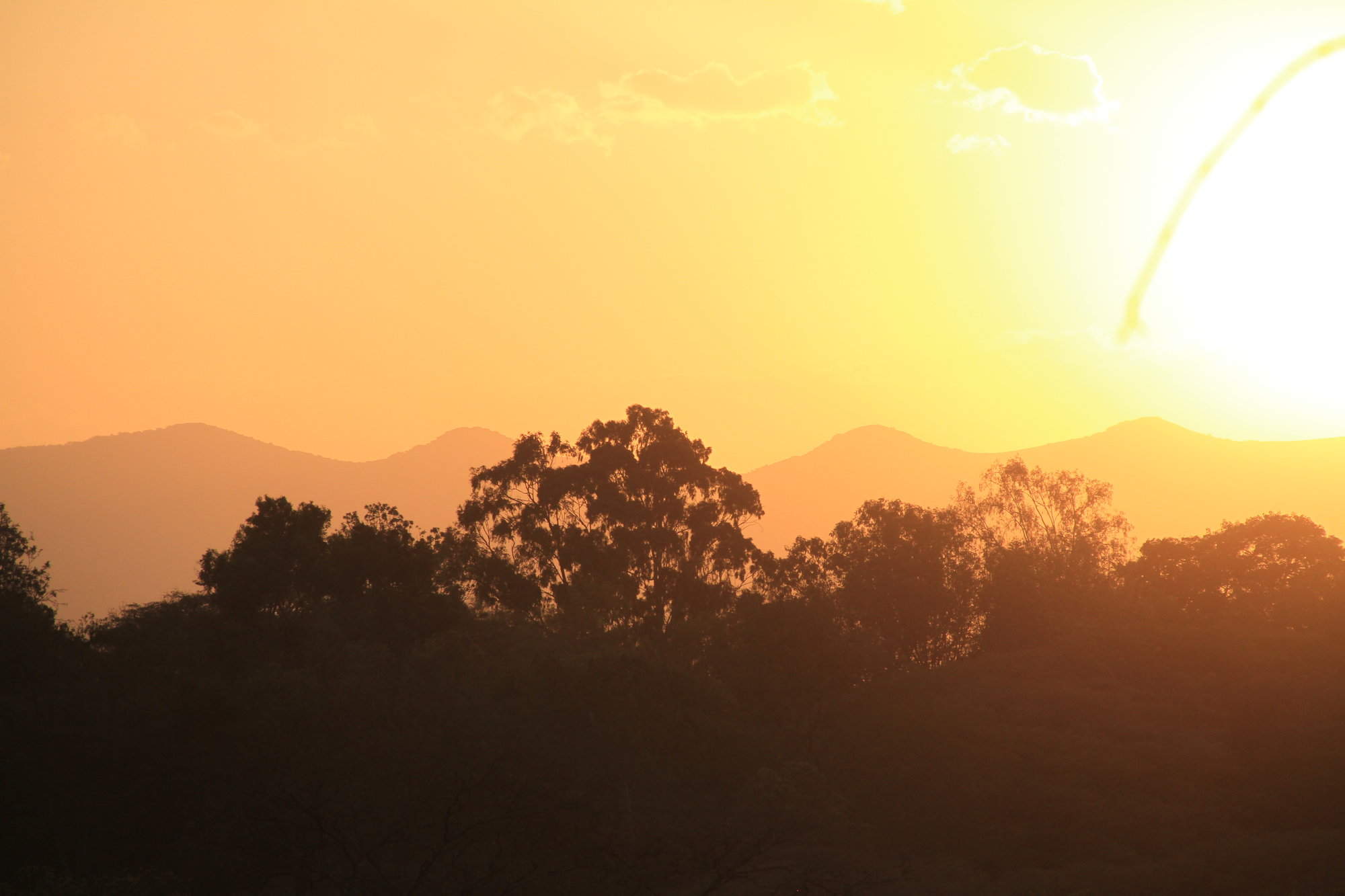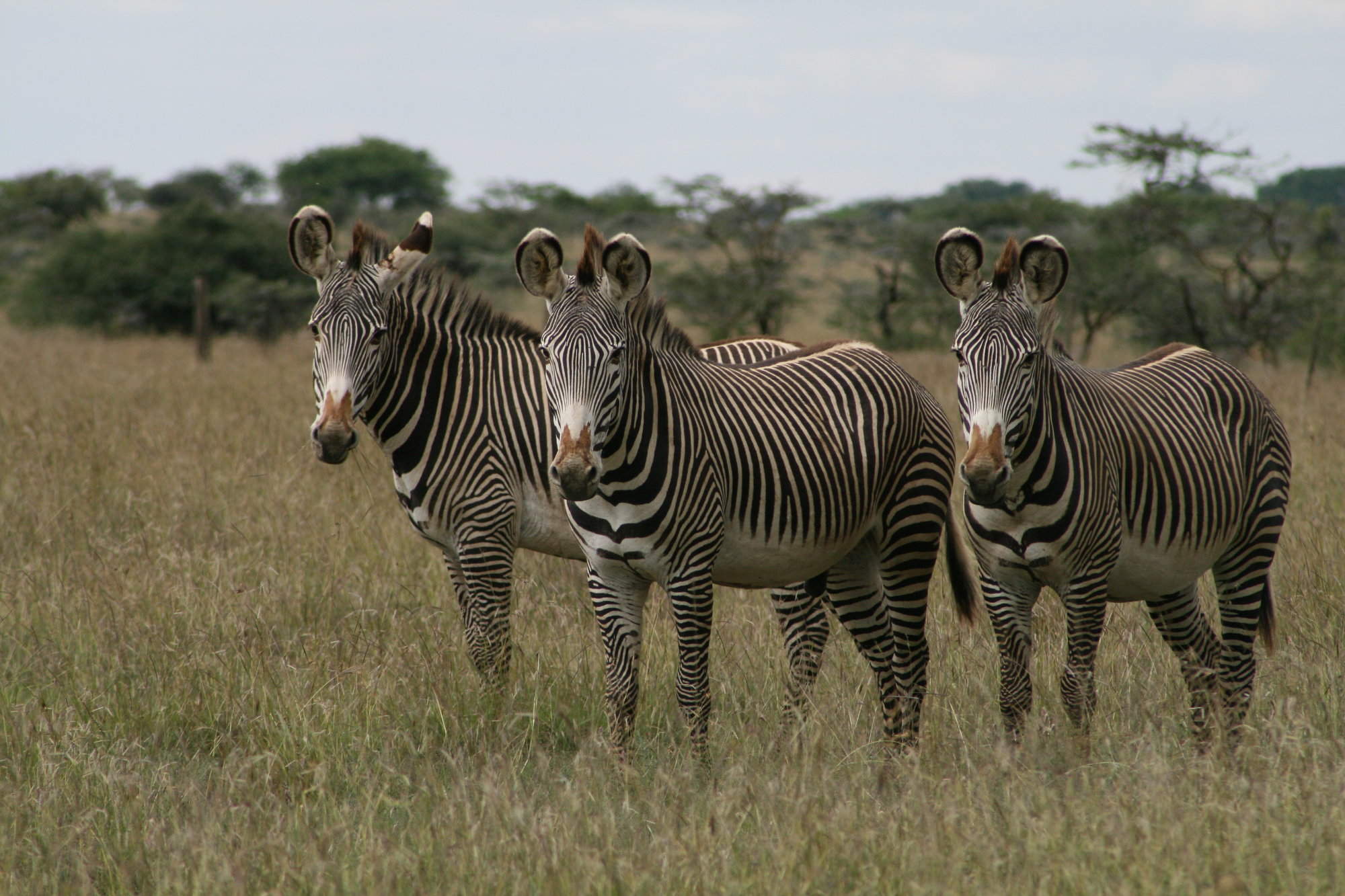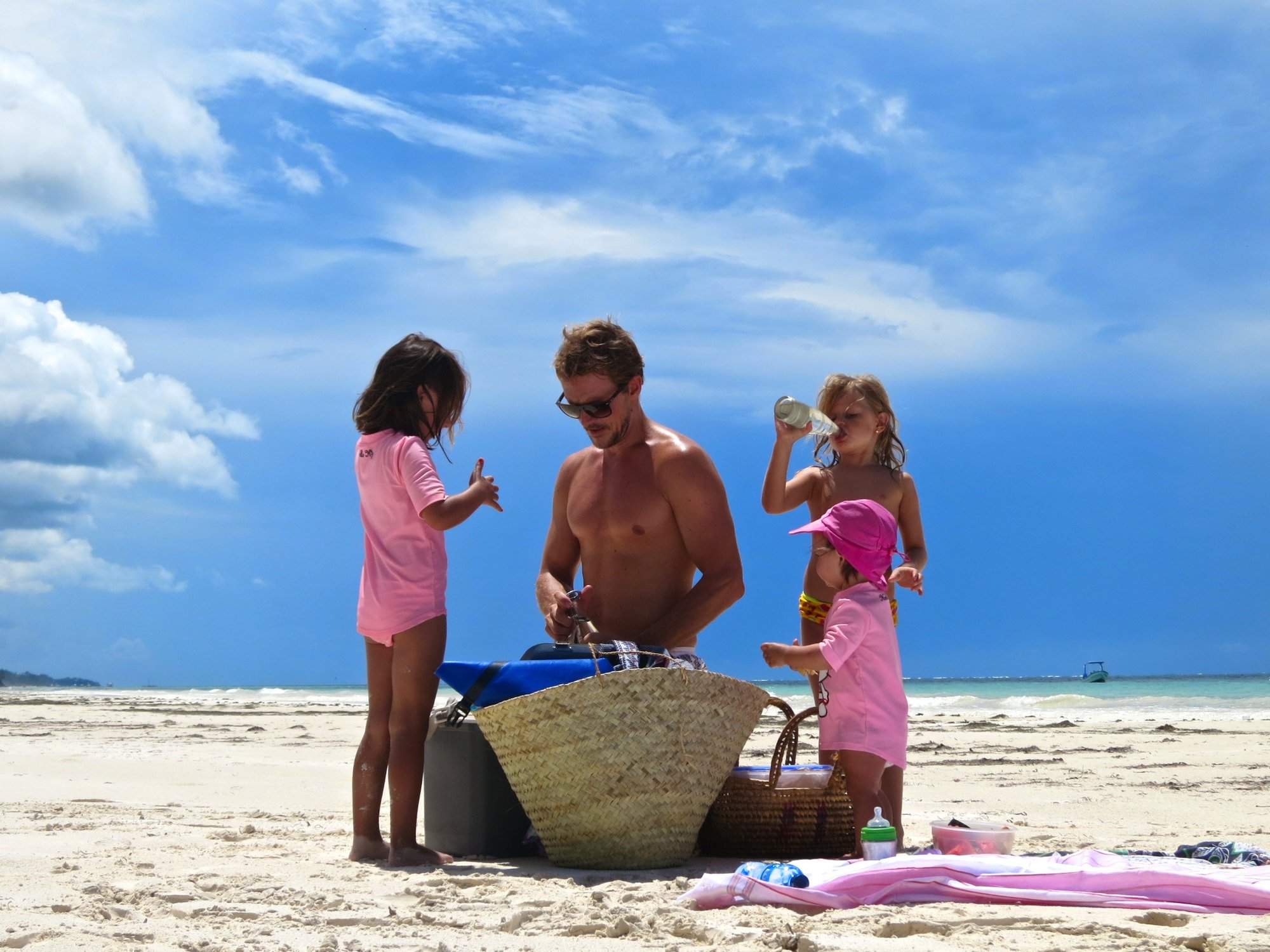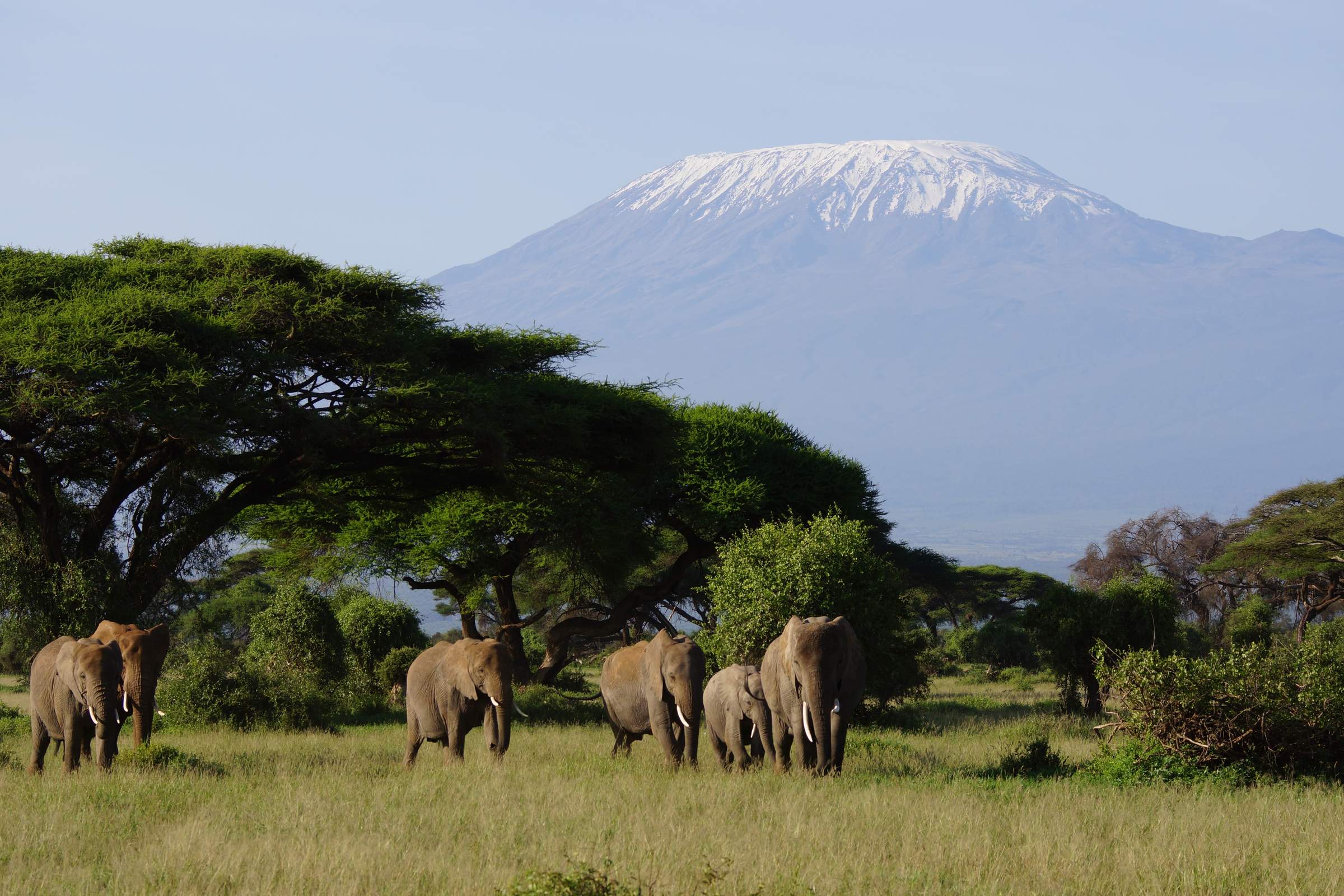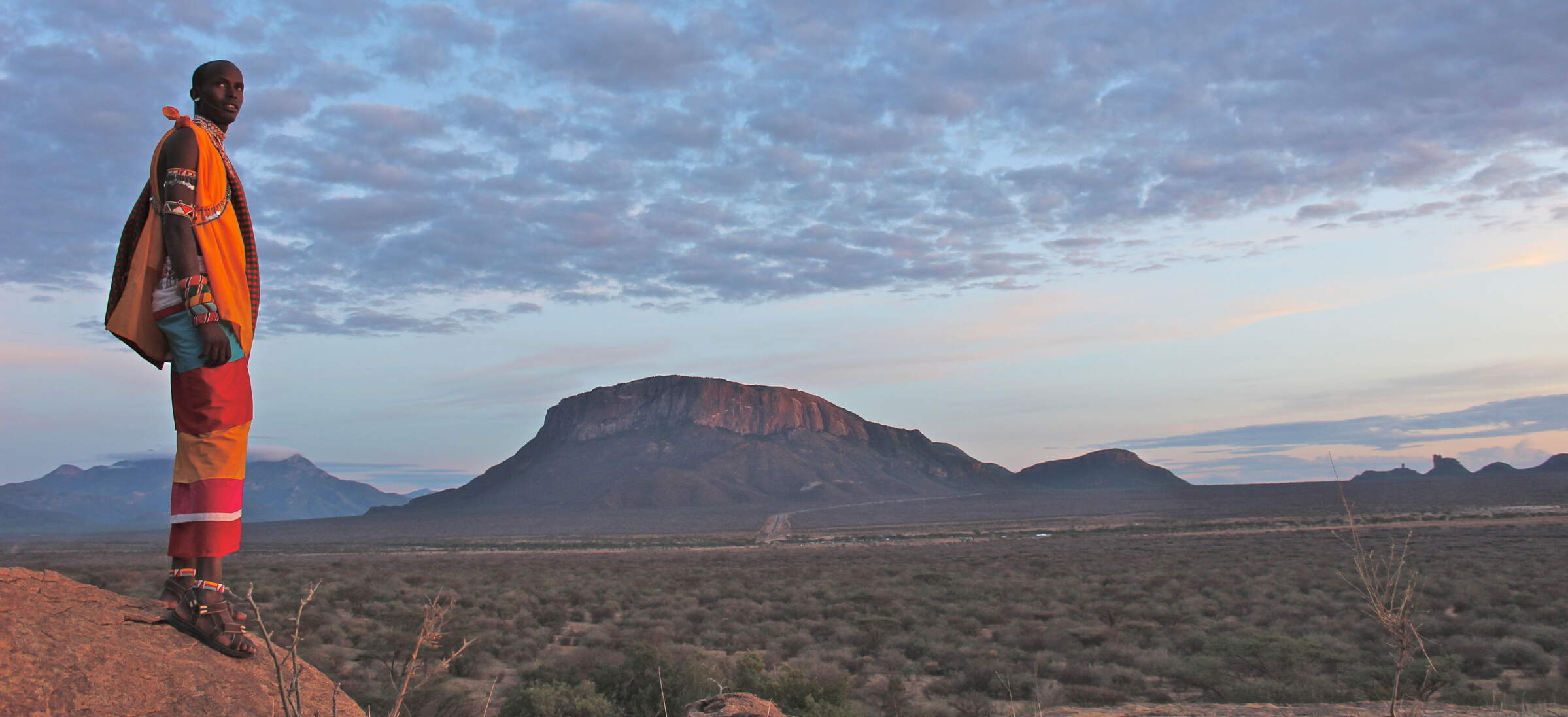Tumbili Cliff Lodge: Our full report
Tumbili Cliff Lodge is a pleasant, small safari lodge on the western shore of Lake Baringo in the northern Rift Valley.
Being a few metres above the lake surface, it has avoided the problem of the lake's rise in water level since 2014.Arriving by road at Tumbili Cliff you drive through the impoverished-looking village of Kampi ya Samaki ('Fish Camp') and park in the light shade of the lodge's parking area, with a crazy paving path leading to the main reception and lounge-dining area of the lodge. When you walk out onto the lawn in front of the main buildings there's a panoramic view across Lake Baringo from the 10-metre-high, tree-shaded cliff of the lodge's name (which means 'Vervet Monkey Cliff'). Meals are often taken out here in the garden, near the cliff-top.
A little away from the main central area is the large and inviting swimming pool, which has a pool attendant, towels and changing facilities, plenty of shade and a good number of sun-loungers. As Baringo is less than 1000m above sea level, the water temperature here is usually very pleasant.
Also near the pool is an unusual feature of Tumbili Cliff - a powerful astronomical telescope, housed on a platform. Guests pay Ksh1000 (about US$10) to explore the night sky, which in this relatively remote part of Kenya has exceptionally low light pollution. The telescope allows you to key in any object in the heavens - Saturn, the Andromeda galaxy, Sirius - and then wait for the telescope to swing into action and show it to you.
The six, good-sized guest rooms at Tumbili Cliff are stretched through the grounds along the low cliff edge. Constructed over dead-wood frames, incorporating branches and tree trunks, the rooms have high, thatched roofs and dark, polished stone floors. They're accessed by a door from the rear, and are open on the front side giving access to the lake and garden. There are two twins, two doubles (each with a circular bed) and two triples with a circular double bed and a single). The simple room furnishings include comfy seating, mosquito nets over the beds, floor-standing fans, bedside lights and UK-style 3-pin sockets (with 24-hour power for charging). The interior bathrooms consist of a simple wash basin and flush loo, while attached at the side is a very private outdoor shower and bathtub. We didn't test the water pressure or hot water supply, but Baringo's climate is likely to make the solar-heated water reliably hot. Toiletries are provided in glass flasks.
Visitors with mobility challenges can be hosted at Tumbili Cliff on request. When we visited in 2018 they had recently had a guest in a wheelchair: the staff verdict was that they had "assisted him very well".
Because of the low cliffs on which the lodge is built, hippos are rarely encountered in the grounds. Other mammals that you will see at Tumbili Cliff include dikdiks and vervet monkeys (Swahili: tumbili) but happily no baboons. And the vervets are not yet causing any trouble.
Activities
The main activities at Tumbili Cliff are boat-based excursions, using the lodge's two, fibre-glass vessels, one with a 15hp and one with a 25hp outboard motor, each taking up to 7 passengers. They are equipped with life jackets and the captains always carry mobile phones. Excursions tend to break-down into birdwatching, wildlife and photography trips for keen enthusiasts, and general sightseeing trips for other guests. Tumbili Cliff will usually try to match up guests who want to do similar trips. Tumbili Cliff's main bird guide is the very informative Titus Kangor, who was taught by the eminent Kenyan ornithologist Terry Stevenson (who regularly visits Baringo). Titus has set up a local bird club in Kampi ya Samaki to build capacity in ornithology in the district, and to conduct bird counts. He is teaching Tumbili's manager Elijah Chebon about the district's bird life. The boat captains also have some birding knowledge.Depending on what you want to do, the cost of the excursion is fixed in advance, based on the cost of using the boats, which is set at Ksh4000/hour (roughly US$40). A typical morning or afternoon trip, when the sun is lower and the light is best, would last from two to three hours, taking in the lake's main islands. Visits to the Ruko Conservancy on the northeast shore (Rothschild giraffes and other mammals – conservancy fee extra) and a village visit to a traditional Njemps community on the eastern shore can also be arranged. The Njemps are a local ethnic group whose livelihoods depend largely on fishing and whose roots link them with the Maasai (their language is similar to Maa). The village usually charges a minimum of Ksh5000 to visit).
The other big excursion draw in the region is a half- or full-day excursion to Lake Bogoria National Reserve. Tumbili Cliff does not have a vehicle based at the lodge, so they hire in a local vehicle and driver for these excursions. While we don't feel this arrangement is ideal, the manager assured us that the vehicles and drivers that they hire are reliable and their safety record is good. Costs, not including entry charges, start at around Ksh10,000 per trip (around US$100).
Bird walks around the lodge grounds and nearby bush (there are 45 species here) cost around Ksh500 (US$5) per person for an hour or so. Longer walks, usually for a couple of hours (Ksh1000pp or US$10) are usually conducted from around 6.30am to 9am or from around 4.30pm to 7pm by the cliffs near the main highway, in which case a vehicle is hired for the five-minute transfer in each direction. On these evening walks birders can expect to encounter owls, nightjars and coursers.
Guests are expected to be a little bit flexible about excursion costs using cars, as vehicle charges can vary.
Our view
Tumbili Cliff is run with understated professionalism and we were given an excellent, thoughtful tour of the whole property. While we haven't yet stayed here, we're looking forward to doing so, and to sampling their boating and birding activities in this relatively little visited part of Kenya.
Geographics
- Location
- Rift Valley, Kenya
- Ideal length of stay
- 3-4 nights
- Directions
- Tumbili Cliff can be accessed by road with a private driver-guide and safari vehicle. Allow approximately two hours for the journey from Nakuru town. Alternatively, you can fly by private charter flight to the small airstrip on the south side of Kampi ya Samaki and the lodge will arrange for you to be met by a local taxi driver.
- Accessible by
- Fly-and-Transfer
Food & drink
- Usual board basis
- Full Board
- Food quality
- We didn't try a meal during our short inspection visitt to Tumbili Cliff, but we understand the food is appetising and well prepared. Lunch on the day we visited started with pea soup, followed by a mixed salad, and then lamb steak, with roast potatoes and mixed vegetables, and finished with a fruit salad and ice cream. As usual, vegan, vegetarian and other dietary requirements can be catered for given advance notice.
- Dining style
- Individual Tables
- Dining locations
- Indoor and Outdoor Dining
- Further dining info, including room service
- You can dine more or less where you like, including by the pool.
- Drinks included
- Drinks are not included, but prices are very reasonable, eg Ksh250 (US$2.50) for a glass of house wine or a 500ml (just under pint) local beer.
Special interests
- Birdwatching
- Tumbili Cliff Lodge is an ideal location for birdwatching, with more than 470 species having been recorded in the area. Lake Baringo is also the location where the world record 24-hour bird count was established (342 species) by ornithologist Terry Stevenson in 1986. Many guests here can be seen stalking the grounds with binoculars and big lenses.
- See ideas for Birdwatching in Kenya
Children
- Attitude towards children
- Children are welcome.
- Property’s age restrictions
- None.
- Special activities & services
- None.
- Equipment
- Baby cots and high chairs are available as are children's life jackets for boat trips.
- Generally recommended for children
- While not an especially child-friendly lodge, Tumbili Cliff is a good choice for families prepared to supervise little ones closely. Unguarded falls and relatively wild grounds are potentially hazardous. There is a pool attendant who normally supervises the swimming pool.
- Notes
- Fine for children.
Our travellers’ wildlife sightings from Tumbili Cliff Lodge
Since mid-2018, many of our travellers who stayed at Tumbili Cliff Lodge have kindly recorded their wildlife sightings and shared them with us. The results are below. Click an animal to see more, and here to see more on our methodology.

100% success

100% success

0% success

0% success

0% success

0% success

0% success

0% success

0% success
Communications
- Power supply notes
- Solar water heaters provide hot water for the guest bathrooms. There's a generator to provide backup when the mains supply occasionally fails.
- Communications
- When we visited in 2018, the lodge Wi-fi was not working, but it is normally available. Cell phone signals from several operators are widely available.
- TV & radio
- There is no TV at the lodge at present. Guests keen to see major sporting events and the like can easily watch in the local bars in the nearby fishing village of Kampi ya Samaki.
- Water supply
- Other
- Water supply notes
- Water is pumped from the lake and purified. Drinking water is bought in and decanted.
Health & safety
- Malarial protection recommended
- Yes
- Medical care
- A first aid kit is available, and the head bird guide, Titus, has had some Red Cross training.
- Dangerous animals
- High Risk
- Security measures
- Several askaris are on duty at all times. Because of the low cliffs on which the lodge is built, hippos are rarely encountered in the grounds.
- Fire safety
- Every room has a fire extinguisher and they do fire-training with the company that supplies them.
Activities
4WD Safari
Birdwatching
Boat trip
Fishing
Guided walking safari
Private activities
Extras
- Disabled access
- On Request
- Laundry facilities
- Laundry can be done at extra cost.
- Money
- There is no foreign exchange facility and safe boxes are not available.
- Accepted payment on location
- Credit cards (MC, Visa, Amex) are accepted with a 3% surcharge. Payments can also be made in cash in Ksh, USD, GBP and Euros.
Other lodges in Rift Valley
Alternative places to stay in this same area.








